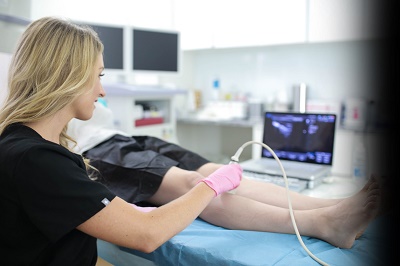When to See a Vascular Doctor? Exploring the Role of Vein Treatment Specialists
Understanding vascular health is vital for maintaining overall well-being. Many individuals often overlook the importance of seeking timely medical care for vascular issues, leading to complications. In this article, we delve into the critical signs that indicate it’s time to see a When to see a Vascular Doctor and how a vein treatment specialist can help improve your quality of life.
What Does a Vascular Doctor Treat?
A vascular doctor specializes in diagnosing and treating conditions related to the blood vessels, including veins and arteries. They address issues such as varicose veins, spider veins, deep vein thrombosis (DVT), peripheral artery disease (PAD), and chronic venous insufficiency.
If you experience persistent discomfort in your legs, such as swelling, aching, or visible veins, it may be a sign of an underlying vascular issue. Early diagnosis and treatment by a vein treatment specialist can prevent further complications.
What Are the Symptoms of Vascular Issues?
Recognizing the symptoms of vascular problems is crucial. Common signs include:
- Swollen Legs: Persistent swelling in your legs, ankles, or feet could indicate poor blood circulation.
- Visible Veins: Bulging or discolored veins are often a sign of varicose or spider veins.
- Leg Pain: Cramping, aching, or a feeling of heaviness in the legs, especially after prolonged standing or sitting.
- Skin Changes: Discoloration, dryness, or sores on your legs may point to chronic venous insufficiency.
- Ulcers or Non-Healing Wounds: These are severe symptoms that require immediate attention.
If you notice any of these signs, consult a vein treatment specialist without delay.
When Should You Seek Immediate Help?
Certain vascular issues require urgent medical attention. These include:
- Sudden Leg Swelling: This could indicate deep vein thrombosis (DVT), a potentially life-threatening condition.
- Sharp Leg Pain with Redness or Warmth: This might signal a blood clot or infection.
- Open Sores or Bleeding Veins: Such symptoms often require prompt intervention to prevent complications.
- Difficulty Walking or Numbness: Peripheral artery disease (PAD) can cause these symptoms and may require immediate treatment.
Ignoring these signs can lead to severe health issues, including stroke or pulmonary embolism.
Why Consult a Vein Treatment Specialist?
A vein treatment specialist is a medical professional trained to address vascular concerns effectively. They use advanced diagnostic tools, such as ultrasound and Doppler imaging, to assess your vascular health accurately.
Treatment options may include:
- Minimally Invasive Procedures: Techniques like sclerotherapy or laser treatments address varicose and spider veins without surgery.
- Compression Therapy: Special stockings improve circulation and reduce swelling.
- Surgical Interventions: In severe cases, procedures like vein stripping or bypass surgery may be necessary.
By consulting a specialist, you ensure personalized care tailored to your specific condition.
How to Prepare for Your Appointment?
When visiting a vascular doctor or vein treatment specialist, come prepared with:
- A detailed medical history, including family history of vascular diseases.
- A list of symptoms, their duration, and any triggers or relieving factors.
- Any medications or supplements you are taking.
This information helps the specialist create an accurate diagnosis and effective treatment plan.
What Lifestyle Changes Support Vascular Health?
In addition to professional treatment, lifestyle changes can significantly improve vascular health. These include:
- Regular Exercise: Activities like walking, swimming, or cycling promote healthy circulation.
- Healthy Diet: Include foods rich in antioxidants, omega-3 fatty acids, and fiber to support vascular health.
- Weight Management: Maintaining a healthy weight reduces strain on your veins.
- Avoid Prolonged Sitting or Standing: Take breaks to move around or elevate your legs when resting.
- Quit Smoking: Smoking damages blood vessels and accelerates vascular diseases.
Adopting these habits complements your treatment plan and helps prevent future vascular issues.
What Are the Benefits of Early Diagnosis?
Early diagnosis and treatment of vascular issues offer several advantages:
- Prevention of Complications: Addressing problems early reduces the risk of serious conditions like blood clots or ulcers.
- Improved Quality of Life: Timely treatment alleviates pain and discomfort, allowing you to resume normal activities.
- Cost-Effective Care: Early intervention often involves less invasive and less expensive treatments.
Seeing a vein treatment specialist at the first sign of trouble ensures better long-term outcomes.
How Do Vascular Treatments Work?
Modern vascular treatments are highly effective and often minimally invasive. Here’s what you can expect:
- Sclerotherapy: A solution is injected into the affected vein, causing it to collapse and fade.
- Endovenous Laser Therapy (EVLT): A laser is used to close off varicose veins.
- Radiofrequency Ablation (RFA): Heat is applied to seal damaged veins.
- Angioplasty or Stenting: These procedures are used to open narrowed arteries.
These treatments are typically outpatient procedures with minimal recovery time, allowing you to return to daily life quickly.
What Questions Should You Ask Your Vein Treatment Specialist?
When consulting a vascular doctor, consider asking:
- What is causing my symptoms?
- What treatment options are available, and which do you recommend?
- What are the risks and benefits of each treatment?
- How long will recovery take?
- What lifestyle changes can I make to improve my condition?
Clear communication ensures you are well-informed and confident in your treatment plan.
Where Can You Find a Qualified Vein Treatment Specialist?
Choosing the right vein treatment specialist is essential for effective care. Look for professionals with:
- Board certification in vascular medicine or surgery.
- Positive patient reviews and a strong reputation in the field.
- Experience with advanced treatment techniques.
- A commitment to personalized care.
Local medical directories or referrals from your primary care physician can help you find a reputable specialist.
How Can a Vein Treatment Specialist Improve Your Life?
Consulting a vein treatment specialist not only addresses your vascular issues but also enhances your overall well-being. By eliminating pain, improving circulation, and restoring the appearance of your legs, you can enjoy a more active and confident lifestyle.
Don’t let vascular problems go untreated. Reach out to a qualified specialist today and take the first step toward better health.
This guide highlights the importance of recognizing vascular issues and seeking timely care from a vein treatment specialist. If you experience any symptoms or have concerns about your vascular health, consult a professional promptly for diagnosis and treatment.













Post Comment